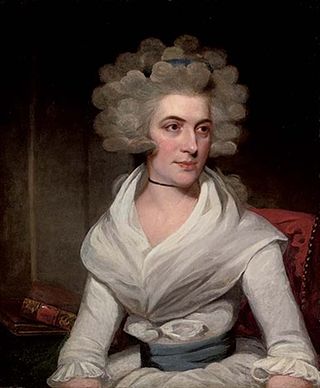Related Research Articles
Robert Montagu, 3rd Earl of Manchester JP was an English courtier and politician who sat in the House of Commons from 1660 to 1671 when he inherited the peerage as Earl of Manchester.
Groom of the Chamber was a position in the Household of the monarch in early modern England. Other Ancien Régime royal establishments in Europe had comparable officers, often with similar titles. In France, the Duchy of Burgundy, and in England while French was still the language of the court, the title was varlet or valet de chambre. In German, Danish and Russian the term was "Kammerjunker" and in Swedish the similar "Kammarjunkare".
Sir Ralph Assheton, 2nd Baronet of Middleton Hall and Whalley Abbey, Lancashire, was an English landowner and politician who represented Liverpool (1677–79) and Lancashire (1694–98) as a Member of Parliament.

Sir James Porter FRS was a British diplomat. He wrote papers on astronomy and geology and was a member of the Royal Society.
The Mayor of Gloucester is the first citizen of the City of Gloucester, England, and acts as chair of the council. The Mayor represents the Council and the City at civic, ceremonial and community events both inside the City boundaries and elsewhere.
Events from the year 1827 in Scotland.

Anna Larpent was a British diarist. She was the de facto assistant Examiner of Plays and her seventeen volume diaries document 47 years of Georgian life.
Lucy Manners, Duchess of Rutland, was a British heiress who married John Manners, 2nd Duke of Rutland.
Thomas Cherburgh Bligh was an Anglo-Irish Whig politician who served in the Irish House of Commons and the Parliament of Great Britain.
Henry Trail was the Member of Parliament for Weymouth and Melcombe Regis between October 1812 and June 1813.
James Gordon was a British barrister, politician and plantation owner on Antigua and St Vincent.
Sir John Lowther Johnstone, 6th Baronet (1783–1811) was a British Army officer and politician.

William Mitchell (1742–1823) was a British planter, attorney and official in Jamaica, where he was known as "King Mitchell" for his many interests in plantations. He was also a Member of Parliament at Westminster, and West India Interest activist.
Major John Rutherfurd of Edgerston was a Scottish soldier and politician.
Sir Robert Rutherfurd was a Scottish merchant who was made a Baron of the Russian Empire.

George de Hochepied, 6th Baron de Hochepied was an English soldier and Whig politician.
Sir Samuel Vanacker Sambrooke, 3rd Baronet of Bush Hill, Enfield, Middlesex, was a British landowner and politician who sat in the House of Commons as MP for Bramber and Great Bedwyn.
John James de Hochepied Larpent, 7th Baron de Hochepied was an English aristocrat of Huguenot and Dutch descent who became a diplomat.
Maud Lane born Magdalen (Maud) Parr became Matilda or Maud, Lady Lane was an English courtier. She was the cousin of Katherine Parr and she became her courtier and supporter of the new Church of England religion.
References
- ↑ "Mr James Trail (Hansard)". api.parliament.uk. Retrieved 23 September 2021.
- ↑ "TRAIL, James (1745-1808), of Hadleigh,, Suff. | History of Parliament Online". www.historyofparliamentonline.org. Retrieved 23 September 2021.
- ↑ "Weymouth and Melcombe Regis | History of Parliament Online". www.historyofparliamentonline.org. Retrieved 23 September 2021.
- ↑ "Electronic Enlightenment: Clarissa Catherine Trail [née Porter]" . www.e-enlightenment.com. Retrieved 4 November 2021.